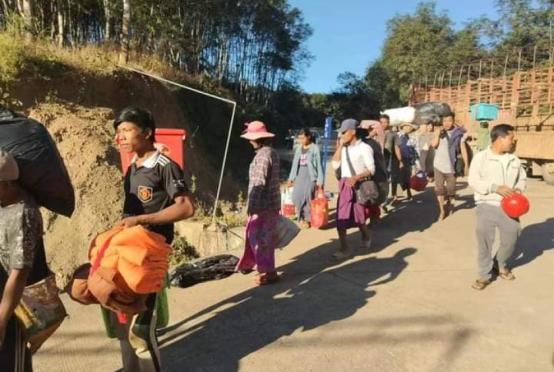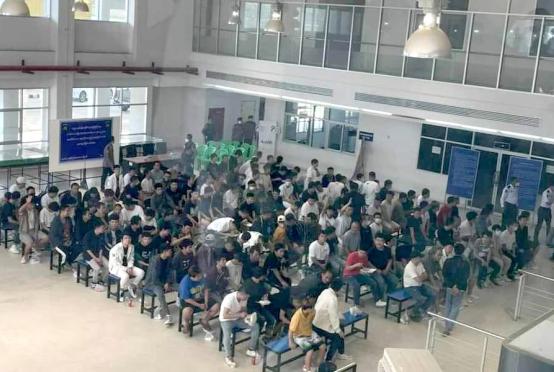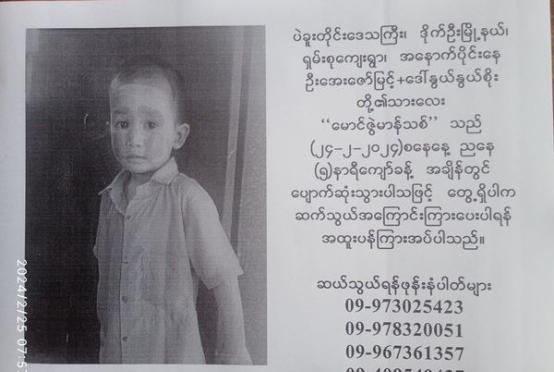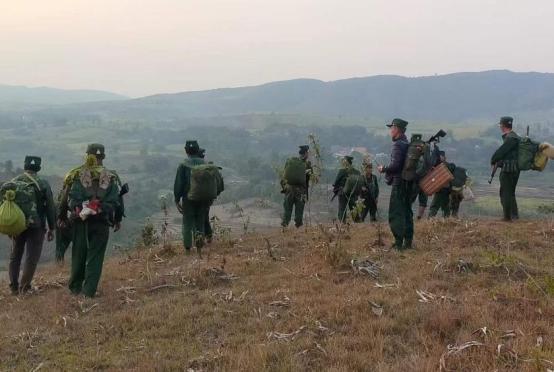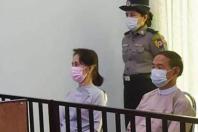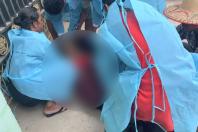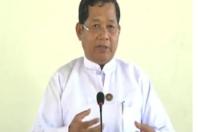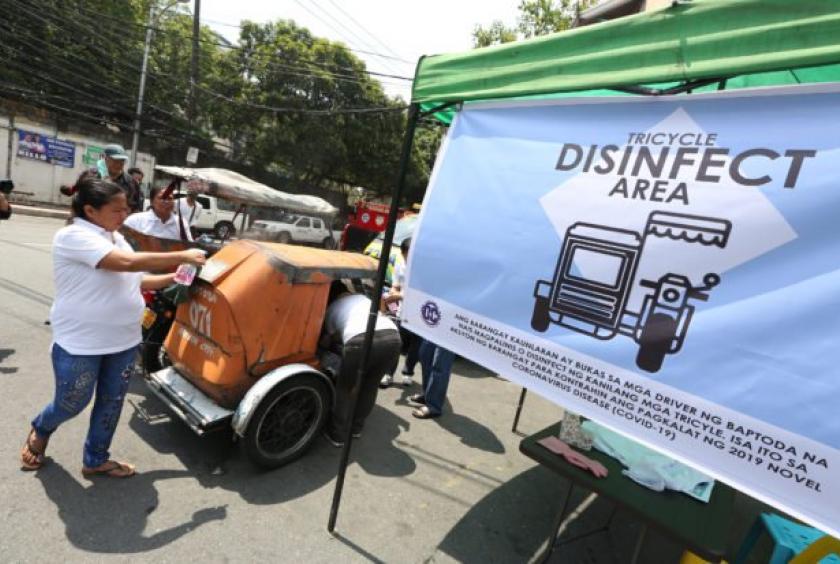
By: Krixia Subingsubing
MANILA (Philippines Daily Inquirer/ANN)—The 17 legislative councils in the National Capital Region (NCR) will be holding emergency meetings to pass their separate ordinances to implement an 8 p.m. to 5 a.m. curfew, but it is unlikely that all of them will be able to do so in time for the start of the 30-day “community quarantine” of the sprawling metropolis on Sunday.
The Metro Manila Council (MMC), the capital’s top policymaking body composed of the 17 mayors in the NCR, unanimously approved a resolution on Saturday seeking a curfew that would be in lockstep with efforts to contain the spread of the new coronavirus that causes the pneumonia-like disease COVID-19.
President Rodrigo Duterte on Thursday announced the imposition of a “community quarantine” on the sprawling metropolis, a move he called a lockdown.
Health authorities reported at least 111 confirmed COVID-19 cases as of Saturday, including eight who have died.
The MMC resolution on Saturday “strongly recommend(ed)” the passage of the curfew ordinance “in order to preserve and protect the lives and health of their constituents.”
Presidential spokesperson Salvador Panelo, however, said the plan was still “subject to the approval” of Mr. Duterte.
Curfew to start on MondayInterior Undersecretary Jonathan Malaya said the curfew will start on Monday “because that is when [local governments] will issue their ordinances.”
The MMC resolution by itself cannot be used to implement a metro-wide curfew. Each of the 17 legislative councils has to pass its own ordinance to set, among others, guidelines and penalties governing the curfew.
Information officers of the cities of Malabon and Caloocan told the Inquirer that their respective councils will hold emergency sessions on Monday to discuss the curfew.
Manila Mayor Francisco “Isko Moreno” Domagoso, however, was able to call a special session on Saturday to discuss the implementation of the curfew.
He said the agenda would also include the temporary suspension of business permits of movie houses and the hoarding of basic necessities.
The curfew would take effect “until the country is no longer under a state of health emergency,” he said.
Muntinlupa City public information officer Tez Navarro said they might be able to pass it before midnight on Sunday.
Quezon City Mayor Joy Belmonte and Pasay Mayor Emi Calixto-Rubiano also committed to rally their city councils and “will pass an ordinance by Monday.”
“We mayors only met today and agreed to adopt a curfew ordinance, though I prefer the term ‘public safety hours,’” Belmonte said.
Taguig public information officer Maricar Brizuela said the city might pass an ordinance on Monday, adding that Mayor Lino Cayetano was the one who initially proposed imposing a curfew.
Checkpoints
Jojo Garcia, general manager of the Metro Manila Development Authority (MMDA), said that in order to “limit the virus, we need to limit the movement of people.”
Interior Secretary Eduardo Año said there would be “exemptions” on who would be covered by the curfew, which would largely be based on whether a person was involved in an “essential” or a “nonessential” activity.
“If you come from reporting to work, or if you need to buy food and medicines, you’re exempted. We’re really after essentials only. The bottomline is people are advised to stay home,” he said.
Lt. Gen. Guillermo Eleazar, deputy chief of operations of the Philippine National Police, said aside from police and military checkpoints on Metro Manila’s borders with adjacent provinces, there would also be “internal checkpoints” to impose the curfew.
Eleazar, however, said no arrests would be made “except when the apprehended individual resists.”
Justice Secretary Menardo Guevarra said an arrest would depend on the local ordinance and that if there were no ordinance “no arrest can be made.” He was reacting to human rights lawyer Jose Manuel Diokno who said police could not arbitrarily arrest or detain a person for violating public health emergency measures such as curfews and travel restrictions.
Guevarra said a curfew violator will just be “physically prevented from entering or exiting” a certain locality, but may do so if the person assaults a law enforcer.
“We are not in a state of martial law. We are fighting a common but relatively unknown enemy, a dangerous and lethal virus … The PNP, assisted by the AFP (Armed Forces of the Philippines), will be on the streets not to sow fear but to protect us,” he said.
The MMC also unanimously passed a separate resolution “strongly recommend(ing)” that all local legislative councils issue ordinances for the temporary closure of malls and other establishments that attract large crowds, except for those offering essential services.
The resolution said those to be exempted were groceries, supermarkets, pharmacies, restaurants with home deliveries, banks and establishments offering medical services, but “subject to a day-to-day evaluation and other exemptions that the city or municipality may enact.”
Trade Secretary Ramon Lopez told reporters in a Viber message that the malls would be closed starting on Sunday, but he did not say how government would help countless mall workers cope when they suddenly find themselves financially ill-prepared.
Protests
“Owners [will] take care of their workers. They can advance [the] 13th month [pay],” Lopez said when asked about the fate of the workers who would be jobless for a month.
Although word about the mall closures spread on social media on Saturday afternoon, mall operators SM, Robinsons, Ayala Malls and Vista Mall said on Twitter they would adjust their business hours to comply with the planned curfew.
Lopez said the mall closure could be justified by revising some of the guidelines on the limited lockdown of Metro Manila earlier on Saturday.
“We can now include closure of malls in definition of areas with mass gathering. [I] have talked to the SMEs (small and medium-sized enterprises), tenants, and mall owners,” he said.
The order will likely draw protests among many contractual workers, including clerks and janitors.
Lopez had been criticized by some for being insensitive to the poor in this time of crisis. In a press conference earlier about the quarantine, he advised workers who commute from the province to the capital to just rent a place in Metro Manila instead.
No authority
House Deputy Minority Leader and Bayan Muna Rep. Carlos Isagani Zarate reminded officials that neither the MMDA nor the MMC has the power or authority to impose a curfew.
Zarate, however, conceded that authorities, may impose measures to contain or prevent the spread and transmission of COVID-19 through Republic Act No. 11332, or the Reporting of Notifiable Diseases and Health Events of Public Health Concern Act.
But these measures must “respect to the fullest extent possible, the rights of people to liberty, bodily integrity, and privacy while maintaining and preserving public health and security,” Zarate said, quoting the law.
“Indeed, we are facing an unprecedented health crisis with the COVID-19, but what we need now are immediate medical and economic solutions, not military ones that only suppress the rights of Filipinos,” he said.
Journalists allowed to travel
Panelo on Saturday said journalists, like other private and government employees, would be allowed to enter or leave Metro Manila if their travel is related to their work.
“They shall, however, present proof of the legitimacy of their work or business at border checkpoints, so our enforcement personnel can validate the necessity of their entry to or exit from the [National Capital Region],” Panelo said.
He warned that those who circumvent or violate Metro Manila’s “community quarantine” by presenting fake company ID cards or falsified business documents to justify their travel would be dealt with strictly.
“The point of the directives issued by the Office of the President is to contain the spread of the coronavirus disease, and in the ultimate, totally eliminate the same from our country. Hence, the Palace asks for the honesty and cooperation of our countrymen as it is now the health and safety of our populace which are at stake,” Panelo added.
He said the Inter-Agency Task Force for the Management of Emerging Infectious Diseases had agreed that, aside from the President, only he and Health Secretary Francisco Duque III may announce or discuss the general policies and guidelines pertaining to government directives dealing with COVID-19.
The heads or spokespersons of the various departments or agencies involved may speak about details regarding the implementation of those directives, he said.
—With reports from Nikka G. Valenzuela, Mariejo S. Ramos, Jerome Aning, Melvin Gascon, and Roy Stephen C. Canivel

